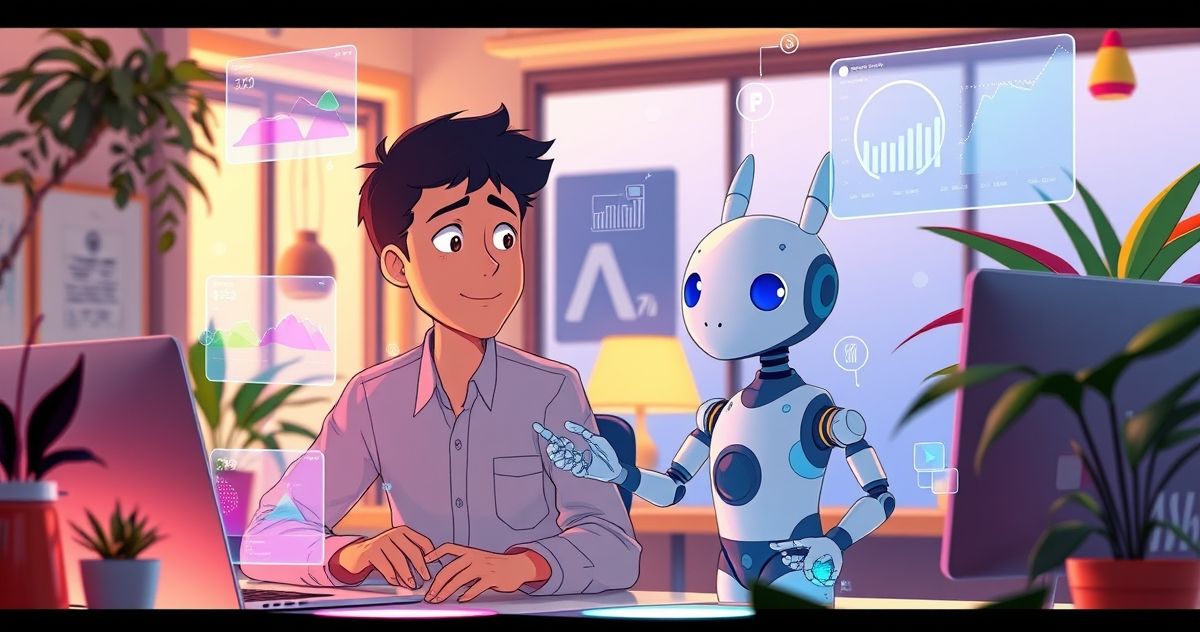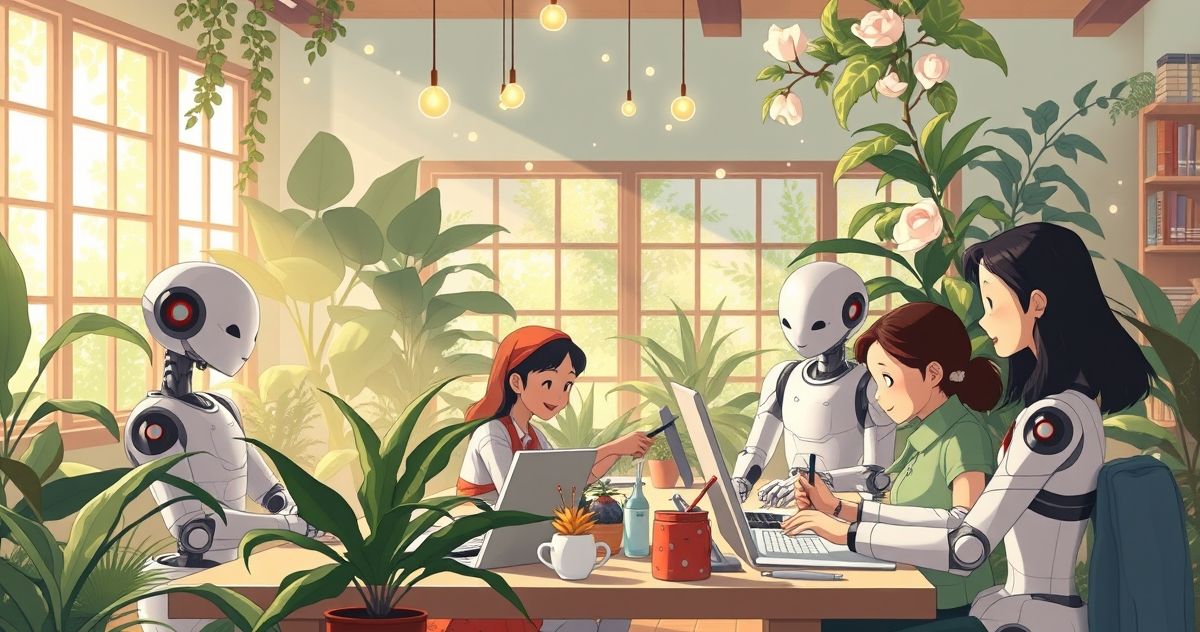🤖 AI Agent Revolution 2025: How South Korea is Leading the Hyper-Personalization Era
🌟 Introduction: From Science Fiction to Reality
The intelligent AI assistant JARVIS from Iron Man is no longer confined to the realm of science fiction. In 2025, South Korea is at the forefront of the AI agent revolution, where artificial intelligence has evolved from simple chatbots to sophisticated digital companions capable of autonomous decision-making and complex task execution.
Major tech giants including Gartner, IBM, and Forrester unanimously predict that AI agents will be the most significant technology trend of 2025. This shift represents a fundamental transformation from reactive AI systems to proactive, intelligent assistants that can understand context, learn from patterns, and adapt to individual needs.

🚀 What Makes AI Agents Revolutionary?
Beyond Traditional AI: The New Generation
Traditional AI systems were primarily reactive—answering questions when asked and executing commands when instructed. AI agents, however, represent a paradigm shift:
- Autonomous Decision Making: Given a goal, they create and execute their own plans
- Continuous Learning: They adapt and improve based on user interactions and feedback
- Environmental Integration: They seamlessly connect with various systems and APIs
- Real-time Responsiveness: They react instantly to changing circumstances and provide alternatives
Real-World Applications in South Korea
South Korean companies are pioneering innovative AI agent implementations across multiple sectors:
Business Automation
- Automated meeting scheduling and document preparation
- Customer inquiry analysis with personalized solution recommendations
- Supply chain optimization and inventory management
Daily Life Enhancement
- Integrated smart home device management
- Personal health and schedule optimization
- Customized shopping and travel planning

💎 Hyper-Personalization: The Next Frontier
Understanding Hyper-Personalization
While traditional personalization might suggest products based on demographic data, hyper-personalization leverages real-time context to understand exactly what an individual needs at a specific moment. It's the difference between "people like you buy this" and "given your current situation, mood, and goals, this is what you need right now."
Core Technologies Driving Innovation
Multimodal Data Analysis
- Integration of text, voice, image, and behavioral pattern analysis
- Real-time context understanding and environmental awareness
Deep Learning Prediction Models
- Anticipation of personal preference changes
- Adaptation to lifestyle evolution and life events
Privacy-Preserving Technologies
- Federated learning ensures personalization without compromising privacy
- On-device processing reduces data exposure risks

🌈 Industry Transformation in South Korea
Retail Revolution
Korean e-commerce platforms are implementing AI shopping assistants that:
- Curate products based on individual lifestyle and budget constraints
- Predict replenishment needs and automate reordering
- Monitor price fluctuations and recommend optimal purchase timing
Healthcare Innovation
Advanced AI health consultants are emerging that:
- Analyze genetic information, lifestyle patterns, and environmental factors
- Provide personalized disease prevention strategies
- Offer real-time health monitoring with early warning systems
Financial Services Evolution
Personal finance AI managers are being developed to:
- Analyze spending patterns and suggest tailored saving strategies
- Construct investment portfolios based on individual risk tolerance and goals
- Provide credit management and loan optimization advice
🎯 Key AI Trends to Watch in 2025
1. Autonomous AI Agent Mainstream Adoption
Microsoft predicts 2025 as the year when AI agents will fundamentally transform work patterns. From routine tasks to creative problem-solving, AI will take on increasingly sophisticated roles.
2. Multimodal AI Maturation
AI systems that simultaneously understand and process text, voice, images, and video will become commercially viable, enabling more natural and intuitive interfaces.
3. Edge AI and Real-Time Processing
Personal devices will handle AI processing locally rather than relying on cloud services, ensuring faster response times and enhanced privacy protection.

🛡️ Ethical AI and Responsible Development
Transparency and Trust Building
The development of Explainable AI (XAI) technology is crucial for ensuring AI agents can clearly articulate the reasoning behind their decisions and recommendations.
Bias Reduction and Fairness
Korean developers are prioritizing diverse datasets and algorithmic fairness to ensure AI services don't discriminate against any particular group or demographic.
Data Sovereignty and Privacy Protection
Users must maintain complete control over their personal data, with systems designed to respect individual privacy preferences and data ownership rights.
🚀 Practical Tips for AI Agent Integration
For Individual Users
- Set Specific Goals: Instead of "save money," tell your AI agent "reduce monthly food expenses by 30%"
- Provide Active Feedback: Help your AI learn by correcting mistakes and confirming successful recommendations
- Regular Privacy Reviews: Periodically assess and adjust your personal data sharing preferences
For Businesses
- Gradual Implementation: Start with simple tasks and gradually expand AI agent responsibilities
- Employee Training: Develop comprehensive AI literacy programs for staff
- ROI Measurement: Establish quantitative metrics to assess AI implementation effectiveness
🔮 Preparing for the AI-Driven Future
The AI agent revolution of 2025 represents more than technological advancement - it's a fundamental shift in how humans and machines collaborate. South Korea's leadership in this space positions it as a global innovator in the hyper-personalization era.
The key to success lies not in fearing this technology but in understanding how to leverage it wisely. AI agents are designed to augment human capabilities, not replace them. By handling routine and time-consuming tasks, they free humans to focus on creative, strategic, and meaningful work.
As we stand on the threshold of this new era, the question isn't whether AI agents will transform our lives, but how quickly we can adapt to harness their full potential. The future is already here, and it's more personalized, intelligent, and responsive than ever before.
Original: https://trendy.storydot.kr/blog/ai-agent-revolution-2025/


0 Comments